Editor’s intro: Dr. Andrew Howard, Master Implant Dentist, LLC, has been placing and restoring implants for three decades. Here is his story.
Master Implant Dentist, LLC
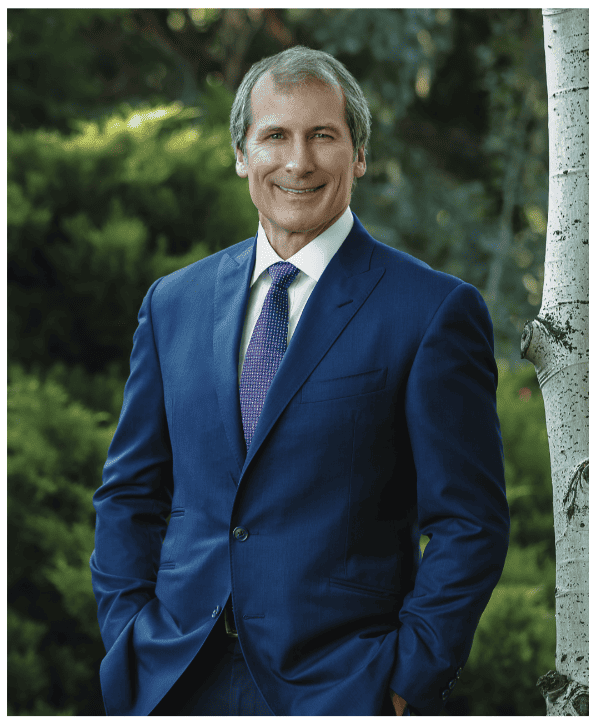
What can you tell us about your background?
I moved to Loveland, Colorado, from Indianapolis, Indiana, right after my General Practice Residency at Joseph Hospital in Denver in 1988. It was a small town with a population of about 40,000 at the time. I purchased a two-operatory practice and loved being so close to the mountains, the lifestyle, and recreational opportunities. I was shocked that so many of my patients had never heard of dental implants. External marketing by dentists was also almost unheard of. Against the advice of many local dentists, I started to advertise my dental implant services. This quickly allowed me to build a growing practice that was known for being able to handle the most difficult and challenging cases. I was also one of the first general dentists in northern Colorado to offer IV sedation and in-office CBCT scanning. In 2004, I decide to focus my practice on dental implants, full mouth reconstruction, and sedation dentistry. We became the Center for Advanced Dentistry. This involved building a new office with a dedicated surgical suite in addition to four other conventional dental operatories.
Why did you branch out to implant dentistry?
I am a general dentist and never wanted to restrict my scope of practice because I truly enjoy all aspects of dentistry.
Is your practice limited solely to implants or do you practice other types of dentistry?
Approximately 70% of my practice is surgical and restorative implant dentistry. The remaining 30% is mostly major restorative, sedation, and cosmetic dentistry.
Why did you decide to focus on implant dentistry?
I found it extremely frustrating to offer only removable dentures and partials for my patients who were missing most or all of their teeth. We would not accept such poor options for other medical concerns. A denture might alleviate their tooth pain but did nothing for their quality of life. I found implant dentistry to be very rewarding by the way it affected my patients’ overall satisfaction of life, health, and their confidence in social situations. It is amazing what an impact a beautiful, secure, and healthy smile can have on a person’s life.
Do your patients come through referrals?
Yes, our existing patients are our best referral source, but I also receive referrals from other general dentists and even specialists. We also do a very coordinated marketing campaign. My goal was to become known as the local expert in dental implants. We use a variety of marketing methods, including giving live direct-to-patient seminars on a regular basis. This exposure keeps us “top of mind” when someone needs dental implants. It also provides a steady stream of pre-qualified patients that are ready for full mouth restoration with implant treatment. These have been highly instrumental in gaining expert status in our community. Direct to public dental implant seminars have been our best return on investment of any marketing we have done.
How long have you been practicing implant dentistry, and what systems do you use?
I have been placing and restoring implants for over 30 years. Today, I place mostly BioHorizons®, Neodent® and MegaGen. However, at various times over the years, I have used most of the major systems.
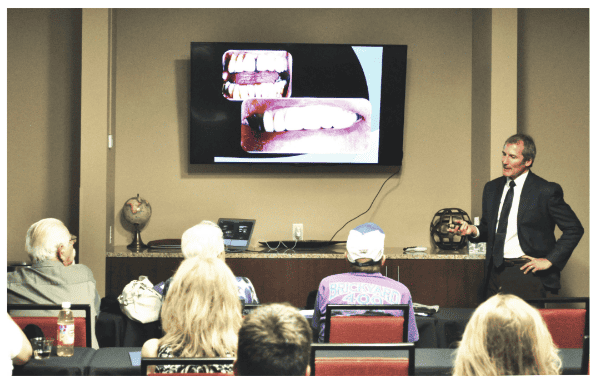
What training have you undertaken?
I was fortunate to train in my residency under a world-renowned oral surgeon who was a pioneer in sinus augmentation and bone grafting. This sparked my initial enthusiasm for what was possible in implant dentistry. I took as much CE as possible and still do. I completed extensive training with Dr. Carl Misch and became a Fellow of the Misch Implant Institute and a Fellow of the International Congress of Oral Implantologists. I have also received vast amount of knowledge from Dr. Michael Pikos and the Pikos Institute. Dr. Frank Spear, Dr. John Kois, The Midwest Implant Institute®, and many others have also provided very valuable training.
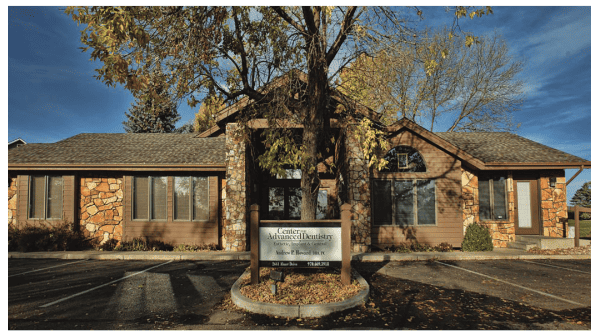
What are the most satisfying aspects of your practice?
- The direct, tangible positive effects we can have on our patients’ lives.
- The autonomy to have the style of practice and lifestyle that a fee-for-service implant practice provides.
- Once I committed to being a “specialty general practice” and focus on implant dentistry, we no longer needed to worry about dental insurance. We submit insurance claims, but do not participate in any dental plans whatsoever.
- It is very satisfying to focus entirely on what is best for the patient, and not worry about insurance coverage, or yearly maximums.
Professionally, what are you most proud of?
Being able to give back by providing dental care to those in need both locally and internationally, I have provided dental care on medical missions to Malawi, Haiti, and Mexico. These trips continually open your eyes to what we take for granted. I am proud to have written The Complete Guide to Public Seminars for Dental Implants. This guide explains all the steps from marketing to slides and scripts — everything to walk you through the first seminar and schedule highly motivated pre-screened implant patients. I am also very excited about my co-authorship of Second-Chance Smiles — The Patient’s Guide to Dental Implants. When you give this to prospective patients, they will realize your expertise and learn about the process. All you need to do is add your bio, your philosophy, and background, and this information will be included in your book. We also are thrilled to offer a 2-day training course for your assistants in Denver, our Master Implant Dentist Live Course Dental Assistant Implant Training. We developed this course because we believe that one of the greatest keys to rapid implant growth in your practice is a dedicated and trusted team.
What do you think is unique about your practice?
We work very hard to connect with each individual patient and find out what is most important to him/her so that we can find a solution that best meets his/her needs. We don’t prejudge patients and only suggest limited treatment options. It’s amazing how many patients will accept ideal long-lasting full arch implants when presented properly. We routinely have patients return after a year or more of “thinking about it” to begin comprehensive care.
What has been your biggest challenge?
Finding the balance between my professional interests and taking on personal goals and challenges.
What would you have been if you didn’t become a dentist?
An architect.
What is your top tip for maintaining a successful specialty practice?
Be confident without being arrogant. Treat every consultation as a sincere conversation with a friend. Don’t want the treatment more than the patient does.

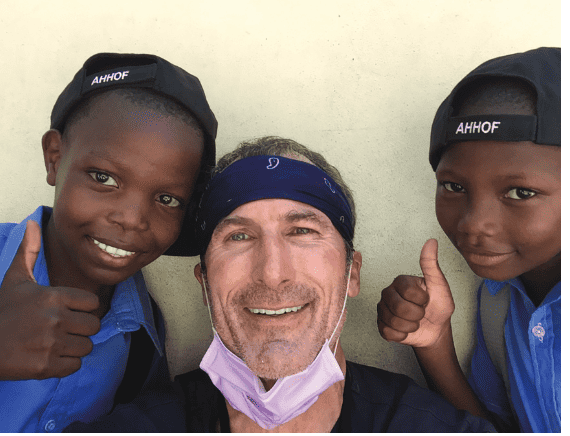
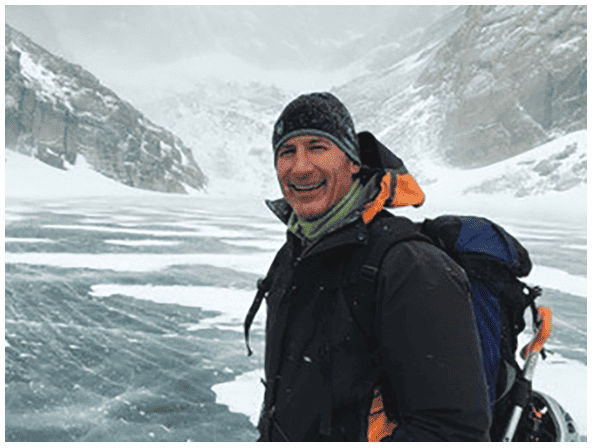
What is the future of implants and dentistry?
New materials and digital workflow will greatly streamline the process. Single units are already very efficient and profitable. However, there is a long way to go toward integrating the existing technology and making it user-friendly for full arch implants. Some dentists love spending hours basically being a digital lab tech. I prefer to use my time treating and talking to patients. In-office 3D printers and milling units are getting better and less expensive, but the labs need to step up their services and become more of a partner in making full-arch implant treatment fast and efficient. Dentists also need to have a better understanding of all the processes and the underlying technology.
What advice would you give to a budding implant dentist?
My favorite quote is from Czech playwright Vaclav Havel who said, “Seek out those in search of truth, and run from those that have found it.” Some of the voices in implant dentistry can be very dogmatic. After so many years of practice, I have seen many trends and changes. You need to be willing to see what works best in your hands and be able and willing to change your mind and try new things. First and foremost, treat your patients as best as possible, and you will have them for your entire career. Many of them will be your best source of referrals. Also, spend the time to train and create an “Implant Concierge” who is your treatment coordinator, financial coordinator, and ideally, your lead surgical assistant. This person is invaluable and needs to think, talk, and act as you do. This will close more implant cases than you can imagine. This not a role that I believe can be divided up among several team members. The personal connection that this team member makes with your large case patients is critical to your success.
What are your hobbies, and what do you do in your spare time?
 Mountain ultramarathons, rock climbing, and soccer. I clear my head best running on the mountain trails in Colorado. My wife Pam and I have three grown daughters with whom we enjoy traveling and spending time in the mountains.
Mountain ultramarathons, rock climbing, and soccer. I clear my head best running on the mountain trails in Colorado. My wife Pam and I have three grown daughters with whom we enjoy traveling and spending time in the mountains.
After reading about Dr. Andrew Howard, discover Dr. Richard Eidelson’s secrets to success during his 30-years in practice here.
Stay Relevant With Implant Practice US
Join our email list for CE courses and webinars, articles and mores



